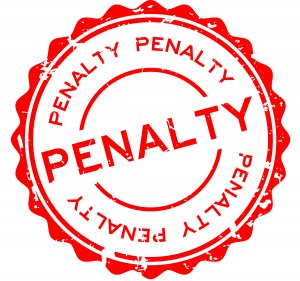
FOUND IT! The perfect image for my rad new website, A UNICORN CAT! Now, I’ll get a million clicks and my site will go viral. PUBLISH!
Been there? Did you ever ask yourself, can I use that image? Without permission from the owner of that image, the answer to this question is a big fat NO!!!
But, what if I give credit to the owner of that image? Still, NO!!!
It’s tempting, just sitting there in Internet world, a mere right-click away from “save as,” perched nicely and ready to be featured on your new website. Well, it belongs to someone else. You wouldn’t just take someone’s printer because you needed that, would you? Didn’t think so. The seemingly innocent grab of an image found online is equally wrong.
Why? What could go wrong?
Complete destruction of your business. Think we’re being dramatic? Think again.
Let’s start with some background information about U.S. copyright law….
U.S. Copyright Law
Copyright protection exists when an original work is fixed in a tangible means of expression. Original means that it is new and created by the author and not copied. Examples of work include images, photographs, paintings, songs, and several other items. A tangible means of expression means that this work is more than just an idea, it was actually created in a format that can be experienced by another person.
Let’s take a song as an example
Sherry Song may have the most infectious number, “KEW is the best law firm ever” written in her head – capable of making people forget about “Hello” and “Formation.” Every night, she may sing “KEW is the best law firm ever” in her apartment with the intent of writing it down or recording it. At this point, “KEW is the best law firm ever” is not tangible. As soon as this future pop sensation records herself, even if only on her cellphone, “KEW is the best law firm ever” is fixed into a tangible form. Boom! She now owns “KEW is the best law firm ever” through copyright.
Note that certain types of work need to be actually registered for copyright protection, but a photograph, or an image found online, almost always will not need to be registered for protection. Registering a copyright provides advantages such as the right to bring suit and the right to statutory damages and attorney’s fees.
Looking back to our song example, let’s say Johnny Builder really likes “KEW is the best law firm ever” and snags it for the Johnny Builder website intro. Let’s also say that Johnny Builder gives credit to Sherry Song, but does not get permission from her to use the song. Copyright violation! Why? Copyright owners have the exclusive rights to use their own works.
Exceptions
There are some exceptions including using the work for criticism, commentary, teaching, and research to name a few. So, when your eighth grade English teacher copied a few passages and handed them out to you to read, she did not violate copyright because the purpose was educational. If you copied those same passages and pasted those on your blog, you violate the copyright.
Back to that unicorn cat image…
ANY unauthorized use of someone else’s image is a violation of copyright law. This means that if you take an image that you find on the Internet and then, without permission from the owner, post it to your blog or website, you violated copyright law. Even if you posted the image for a millisecond, that is enough to constitute a violation.
Planting images
Some people plant images on the Internet for the sole purpose of catching people who repost them without permission. Image planters take photos and then optimize the search results so that their image appears at the top of a search page, baiting someone to take it. The image planters often use computer programs that search the web for the photo. Then, once an unauthorized copy is found, the image planter takes action. Unauthorized copying may simply include copying and pasting an image to your Facebook or Instagram account. Sharing someone else’s post is a different story, for a different blog post, but is more likely to be allowable based on social media platform user agreements.

Penalties
U.S. Copyright law provides statutory damages and attorney’s fees. This means that unlike most other legal actions, even if the creator of an image can’t prove that he was harmed in any way, he is still eligible for damages. The damages can be anywhere from a couple thousand to millions of dollars.
International Concerns
Countries other than the U.S. have laws in place regarding intellectual property violations as well. The origin of an image may likely be from a country other than the U.S. In wrongfully taking an image, you may be approached by someone from another country alleging breach of another country’s copyright law. You would then be scrambling to grab advice about that country’s laws. Most attorneys in the U.S. have a knowledge base in laws of a certain U.S. state, or federal laws, with few having knowledge about laws pertaining to other countries. So, finding an attorney to assist with a situation of an alleged infringement of international or non-U.S. law is likely to be a difficult and costly endeavor.
Contact Attorney Leslie Elkins to further discuss the problems with taking images off the internet, copyright law, or unicorn cats.
